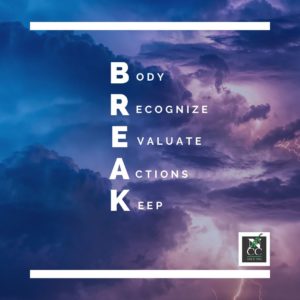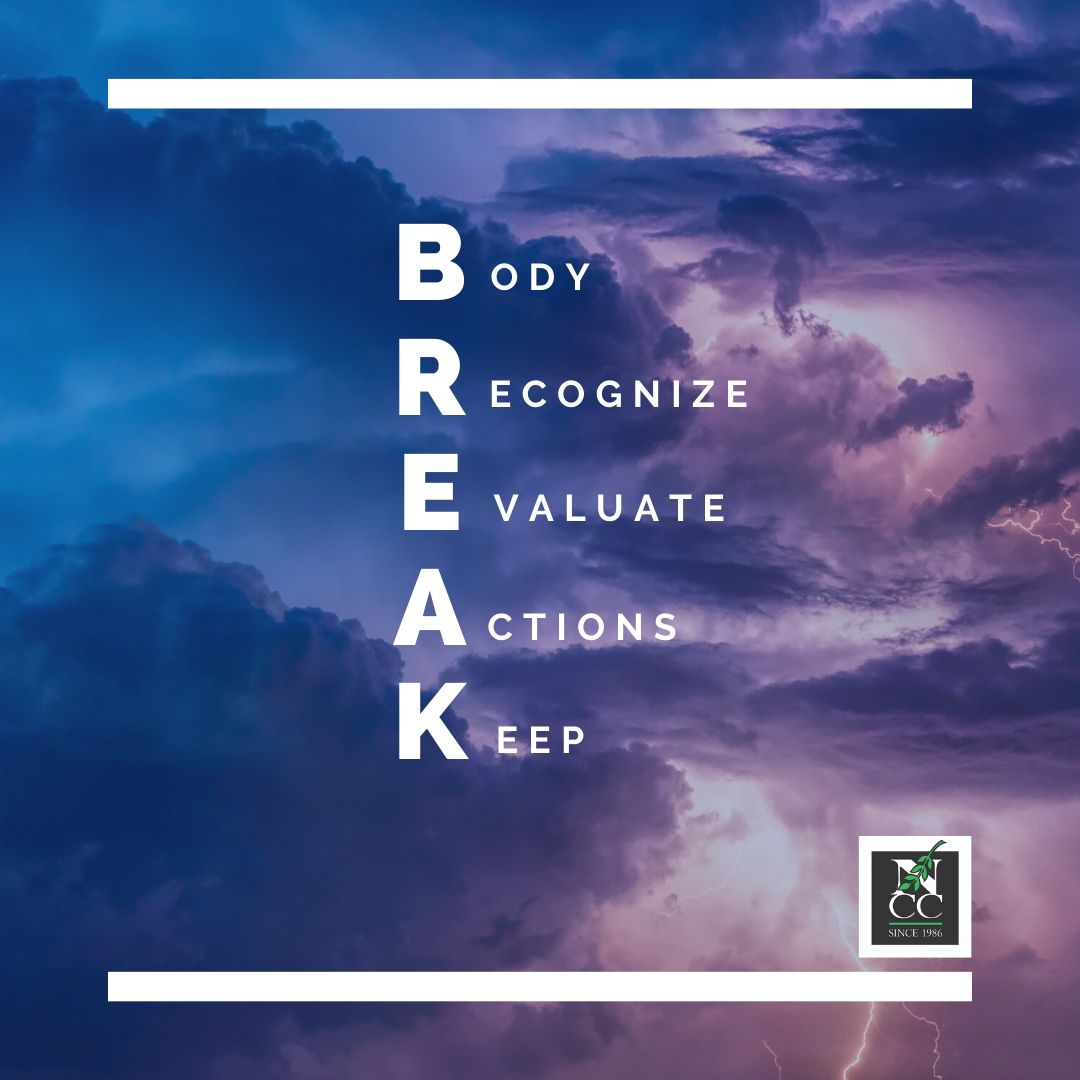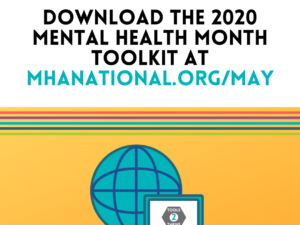Give Yourself a B.R.E.A.K.

March 31, 2020
It is very normal to hear about concerns and scary things and become overwhelmed. Any threat, whether real or perceived, sets off our alarm systems and we immediately operate with automatic responses of fight, flight, and freeze. And as we are experiencing something as threatening or distressing, we are very vulnerable to hit the panic, fear, or anxiety buttons without a pause.
Right now, many of us may feel we are facing something that we do not have power and control over. The feelings of powerlessness and helplessness are very overwhelming and can be triggers that influence how we can sometimes cope with them through anxiety. Our anxiety and panic show up as an attempt to protect us by thinking of all the things that could happen or go wrong and we then do actions to try to control those possibilities. An example of this is the trend of stock piling items to cope with the anxiety around the Coronavirus (COVID-19). Anxiety and panic will tell us a story of what is to come. When we need or want to feel in control, we will do an action to soothe the distress and anxiety. The behaviors of shopping for toilet paper, masks, and water may help people feel they have power and not completely helpless. Anxiety-induced actions gives a brief relief of control and soon the emotions will rise up again when the reality sinks in that these items do not control Coronavirus (COVID-19).
Anxiety, panic, stress, fear, trauma, and/or grief about feeling unsafe and insecure with the Coronavirus (COVID-19) are natural responses. Our emotions show up to inform us that we are experiencing something that is impacting us. When we are operating full-time with our alarm buttons on, we are also overrunning our system with the production of Cortisol, a stress hormone, that can impact the functioning of our immune system. We can take better care of ourselves when we implement strategies that give us a B.R.E.A.K.
Body:

– Our bodies are the containers that our feelings operate within and we can lessen the degree of our reactions and help boost our immune system by tending to the body.
– Basic body self-care is making sure you meet your body’s basic needs: food, water, and rest. When these critical areas are unmet, they become the launching pad for poor emotional management and health.
– Soothe the body during anxiety and distress by using sensory techniques. Listen to music or podcasts that you enjoy, smell pleasant aromas, gaze at images or views that bring calmness, touch your favorite texture, and/or slowly enjoy a bite of something delicious.
Recognize:
– Realize that there are going to be emotions. Emotions are not bad; they are feedback about an event, stressor, or crisis.
– Acknowledge emotions and impacts from these stressors and crisis to validate your experience and anxiety.
– Understand crisis can influence you experiencing trauma and stress responses.
Evaluate:
– Nothing escalates our anxiety faster than the mob mentality that we can experience when we are flooded by multiple media postings, news stories, and numbers being thrown at us in all directions. It is okay to limit how much information you are being exposed to in order to help manage anxiety.
– Check the sources on the information you choose to read, listen, or watch.
– Identify what are the immediate concerns versus the future unknowns. By selecting immediate personal issues, you are placing your focus on something you can execute actions in.

Actions:
– Identifying what is not in your control and what is in your power or capability to do.
– Identify what actions you are able to practice to prevent concern.
- Hygiene: Washing hands, limit touches to the face, or utilize hand sanitizer that contains 60% alcohol.
- Distancing: Avoid people that are sick and limits yourself if you are sick.
– Create a household plan with steps and list of contacts that you can have readily available if needed.
Keep:

– Keep in contact with your supports. Being and feeling alone in the overwhelm of what is happening leaves space for anxiety to fill it.
– Share your emotions and experiences and remember connection can happen in distance with the options of calling, texting, media posting, or video calls.
– Humor still needs to exist. Laughing at your favorite movie or a shared chuckle with one of your supports can go a long way.
We need to be able to hold valid concerns without operating full-time with our alarm buttons on. Distress and anxiety gravitate towards pushing those alarm buttons as the worries and the fears spiral out of control. The strategies in B.R.E.A.K. help bring the focus to helping our bodies ground, power in agency, setting limits to distress, and involving community to help us face the impacts together.
– Michelle Sideroff, LPC





